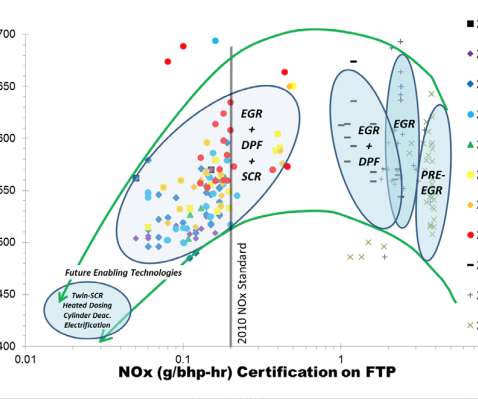EIA: trends in downsized engine design leading to increased demand for higher-octane gasoline
Green Car Congress
APRIL 6, 2016
This trend of increasing demand for higher octane gasoline is likely driven by changes in fuel requirements for light-duty vehicles (LDV) in response to increasing fuel economy standards, which will have widespread implications for future gasoline markets, according to EIA analysts. of the LDV market by 2025.





































Let's personalize your content